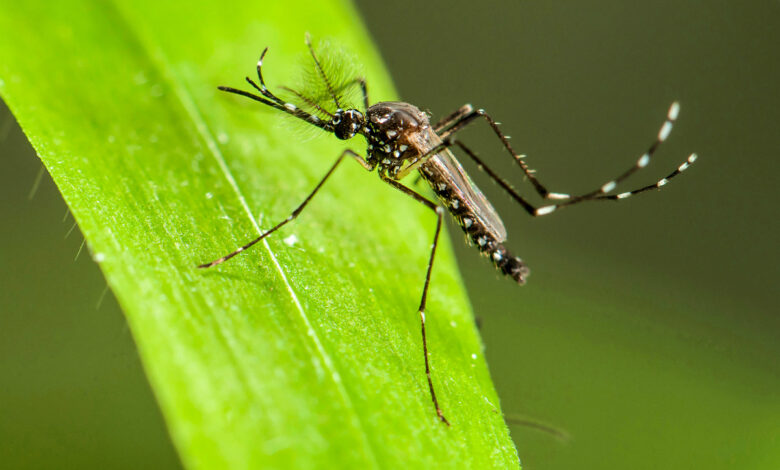
New research shows that male mosquitoes may be just as bloodthirsty as female mosquitoes under certain conditions. The research results change the old belief that only female mosquitoes bite, drink blood and spread diseases, while male mosquitoes drink nectar.
In a study published Oct. 8 in the BioArchive database, researchers show that male mosquitoes are not completely harmless and may play a small role in the spread of the disease. Western encephalitis male mosquitoes (Culex tarsalis) and yellow fever mosquito (Aedes aegypti), which are usually averse to blood, turn to blood drinking to supply meals when humidity is low and they cannot obtain sugar.
Male mosquitoes that were thirsty tended to drink blood
According to Science News, Jason Rossgon An entomologist at Pennsylvania State University found that when the researchers reduced the humidity and removed the mosquitoes’ usual meals of nectar, some male mosquitoes sometimes fed on blood through a thin artificial membrane.
Rasgun wanted to know if male mosquitoes who have not eaten nectar and are thirsty try to take blood from a person or not; So he put his hand in cages containing male mosquitoes. Hydrated males mostly ignored her, but dehydrated males landed on her hand and examined her skin. Even a male mosquito bit him. Rasgun says:[پشهای که سعی کرد مرا نیش بزند] It barely penetrated the first layer of the skin. I was shocked [و] I didn’t expect this to happen.”
The long and tubular parts of the mouth of male mosquitoes do not have the ability to pierce deeply to draw blood. But the scratch on Rasgun’s hand by Jijihis cat had been created, allowed him to test whether males could receive blood in another way. The result was as expected: dehydrated male mosquitoes sipped blood from the open wound.
read more
In another experiment, male yellow fever mosquitoes that were genetically engineered to be unable to sense humidity did not go to blood feeds as often when humidity was low. These findings suggest that male mosquitoes may seek blood to quench their thirst.
A previous study showed that blood for male southern house mosquitoes (Culex quinquefasciatus) is poisonous and scientists thought that not all male mosquitoes have the ability to digest blood. But in Rasgon’s experiment, male Culex tarsalis mosquitoes that were fed blood lived as long as mosquitoes that didn’t receive blood, and even slightly longer.
As its name suggests, the yellow fever mosquito is the main carrier of yellow fever in nature; But it can also spread Zika, chikungunya, and dengue; While the female Culex tarsalis mosquito can transmit West Nile virus, St. Louis encephalitis and related diseases. The researchers found that male Culex tartalis mosquitoes may be infected with West Nile virus and, like female mosquitoes, produce infectious virus in their saliva.
Rasgun doubts that males are a significant vector of the disease, but scientists need to reconsider the idea that male mosquitoes don’t feed on blood and find out whether, in rare cases, males can spread viruses.









